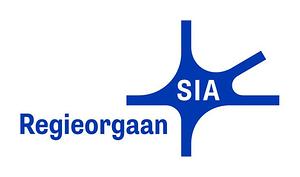Cases like missing persons cause massive social unrest and confront crime scene investigators with a dilemma: speed versus carefulness and precision. Forensic cues of clandestine graves and surroundings change through time due to natural decomposition. In addition, they get contaminated due to natural processes such as growth of plants around the clandestine graves.
Research question
How can an intelligent drone be developed and incorporated in the practical crime investigation to develop a new methodology and work process for forensic investigators that is quick, reliable, cost effective and safe while complying to the new EU drone regulation?
Moreover and most importantly, they get contaminated unknowingly due to the involvement of large member of the public during voluntary search activity. As a result, time and preventing contamination of such crime scenes are key factor for successful conclusion of such crime investigations.
According to both the national police (NP) and NWVA, the current forensic investigation process of identifying and localizing clandestine graves of both human and animals highly involve mobilization and involvement of large number of human investigators and volunteers. However, such classical approaches are often confronted with the mentioned limitations as time and resource constraints and crime scene contamination.
Project approach
Naturally, the application of perceptive drones is gaining popularity amongst public institutions like law enforcement agencies. The urgency for employment of innovative technologies (such as drones) in investigative processes is clearly stipulated in the development agenda of the National police. It expresses the need for radical innovation in the domain of forensic investigation to increase effectiveness. Even more importantly, it indicates that a high outflow of employees is expected in the coming years due to aging. This will also result in prioritizing solving active incidents. This means that extra pressure will be put on already stretched investigators.Technological advances like autonomous drones have a high potential to relieve this burden.
Project goal & Research outcome
The main theme of this project is on how the potentials that drone technologies offer can be incorporated and realized in the investigative work process of the crime scene investigator, within the new legislative boundaries in order to optimize the outcome of their investigative work. In this project, the knowledge institutes will enrich their knowledge in drone technologies, domain specific knowledge on forensic research, operational procedures and integration in work processes of the professional. This project will also make a demonstrable contribution to the renewal of higher professional education. The police and NVWA will be equipped with operating procedures, legislative knowledge, skills and technological expertise needed to be on the forefront and benefit optimally from the potential of autonomous drone technology within their work processes. Moreover, the results of this project are expected to impact the public safety and security of the society positively.
Duration project
Start project: 01-01-2021 - End project: 31-12-2022
Partners


Space 53
Website
Nationale Politie
Website
DRONExpert
Website
ArcheoPro
Website
TValley
Website
Regieorgaan SIA
WebsiteMore information about the project?
